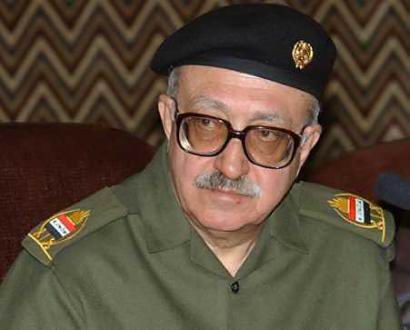Global General
Former Iraqi Deputy PM Aziz sentenced to death
(Xinhua)
Updated: 2010-10-26 17:02
 |
Large Medium Small |
|
|
BAGHDAD - An Iraqi court on Tuesday issued a death sentence to former Deputy Prime Minister Tariq Aziz who served under Saddam Hussein's regime, Iraqi official television reported.
"The Supreme Criminal Court issued an execution sentence against Tariq Aziz for his role in eliminating religious parties during Saddam Hussein's regime," the state-run television of Iraqia said.
According to the Iraqi law, the death sentences have to be ratified by the three-member presidency council before being carried out.
In 2009, Aziz was sentenced to 15 years in prison due to crimes against humanity in the 1992 execution of 42 Iraqi merchants, and was separately sentenced to another seven-year imprisonment for his role in the ethnic forced displacement of Kurds in northern Iraq during Saddam's rule.
Also in 2009, the Iraqi High Criminal Court acquitted Aziz in a separate case over crackdown on Shiite protestors that followed the 1999 assassination of Shiite cleric Grand Ayatollah Mohammed Sadeq al-Sadr, father of radical cleric Muqtada al-Sadr.
In Mid 2010, the US military handed over dozens of detainees, including Tariq Aziz, to Iraqi authorities.
The announcement came a day before the US military hand over Iraqis the Camp Cropper, the last US-run internment facility, in which the US military held some high value detainees such as the ousted president himself and some of his top lieutenants.
Aziz was born in Mosul in Iraq's northern province of Nineveh to a Christian family in 1936. He studied English literature at Baghdad College of Arts, and became a teacher and journalist. He joined the Baath party in 1957, working closely with Saddam to overthrow the monarchy in 1958.
During his career as a journalist he headed two newspapers in Iraq, al-Jumhuria and al-Thawra. In 1974, he became then minister of information. For more than 20 years under Saddam's rule, Aziz played a key role in Iraqi foreign policy, as foreign minister and as deputy prime minister.
Aziz, the only Christian in Saddam's Muslim regime, was known as a fierce American critic after Iraq's invasion of Kuwait and the subsequent 1990-1991 Gulf War.




